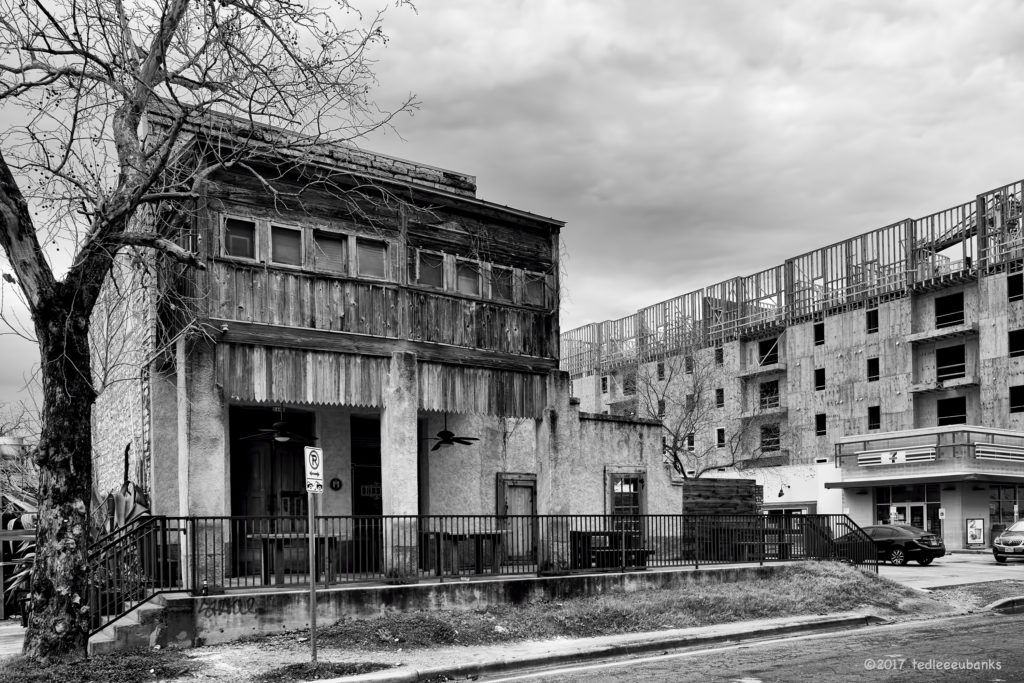
Human progress is neither automatic nor inevitable… Every step toward the goal of justice requires sacrifice, suffering, and struggle; the tireless exertions and passionate concern of dedicated individuals. Martin Luther King, Jr.
The Rev. Jacob Fontaine (1808 – 1898) lived his first 55 years as a slave. For a time, he and his wife lived on the Woodlawn Plantation, part of which is now Pease Park. With emancipation, the Rev. Fontaine became one of Austin’s most notable residents.
From this building on San Gabriel at West 24th, he operated a number of businesses, including The Gold Dollar, one of the state’s first black newspapers. Black newspapers such as The Gold Dollar served a number of purposes. Newspapers help freed slaves learn to read, keep up with current news that concerned them, and contact family members that were alienated by slavery.
For example, Rev. Fontaine place the following ad in the first edition of The Gold Dollar:
Aney one wishing to inquire for thir kinn send ten cents to the gold dollar…J. Fontaine.
This building is one of the few structures left from Wheatville, one of Austin’s freedom towns that arose after the Civil War. Wheatville corresponded to present-day West 24th Street to the south, West 26th Street to the north, Shoal Creek to the west, and Rio Grande Street to the east. In other words, Wheatville was wholly contained within the Shoal Creek watershed.
Rev. Fontaine and his family lived in the building from 1875 to 1898. Currently, the building is a bar and smokehouse, Freedmen’s Bar. The chandelier over its front bar was reportedly a part of the historic Pease Mansion, where Fontaine’s wife kept house during the 1870’s.
The University of Texas and its students have subsumed virtually all of Wheatville, an irony I assume would not be lost on the Rev. Fontaine. He tirelessly campaigned among African-Americans in Texas to support the establishment of a state university in Austin, a university that would not completely desegregate until after the passage of the Civil Rights Act of 1964.